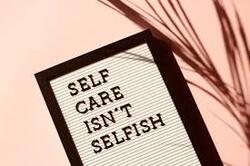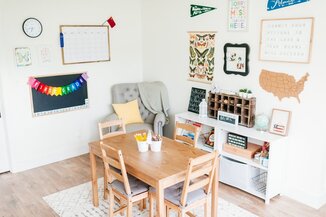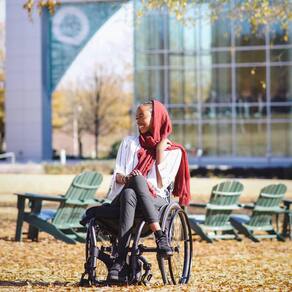 During these past few months, there has been so many different emotions that we have been experiencing. Some of us are experiencing higher levels of anxiety and fear while others may be feeling higher levels of intuitiveness, reflectiveness and mindfulness. Our personal feelings are susceptible to change depending on our individual experiences, spirituality, and outlook on life. As we go through making adjustments in our daily lives whether that is with our jobs, family, social interactions, or simply going into public spaces. It is imperative that we take out moments for our personal self-reflections in order to find balance and take care of our health holistically. One of the ways that we can do this is by implementing a self-care routine into our daily lifestyles. The term has become more popular in the last few years as we find our selves being more conscious of our mental states and understanding more how mental health is a vital key to our wellness. Self-care encourages us to maintain a healthy relationships with ourselves so that you may transmit the good energy to others. Indeed self-care as is far from selfish, but rather self-care is a necessity that allows us to become the best version of ourselves for our well-being and the people around us. Paying attention to our well-being, is necessary for reinvigorating, restoring and rejuvenating ourselves. Everyone around us also benefits from the renewed energy, peacefulness, and joy that we exhibit internally. There are so many ways to engage in self-care routines some in which include meditation, reading a book, stretching, taking a nature walk, or simply soaking in the tub. I personally try to alternate in which self-care techniques that I engage in. Whichever self-care technique that we choose to engage in allow it is be an intentional catalyst for personal healing and reflection. More than ever we have to engage in these positive acts of self-love. Mecca East MPHMecca N. East is the Chief Operating Officer and Executive Director of Salaam Clinic, a free clinic located in Cleveland, OH. She is the Founder and CEO of Imani Wellness Institute. She is also a certified doula and community health advocate and dedicates her time promoting health education and wellness to the community. She recieved her Bachelor's degree in Biology/Pre-Medicine in 2004 from Spelman College in Atlanta, GA. In 2017, she received her Master's degree in Public Health from The George Washington University in D.C. Mecca is committed to uplifting the community in which she serves by improving health outcomes through empowering individuals and families to embrace healthy lifestyles.
0 Comments
 “According to a 2009 study of standardized testing, homeschoolers scored in the 86th percentile. The results held true even when controlling for parents' income level, amount of education, teaching credentials, and level of state regulation. Research also suggests that homeschooled kids get into college more often and do better once they're enrolled.”(Weller, 2016) If no one has told you, you are the best teacher for your child. You are their role model, superhero, and confidant. As you raise your protege, you always want to be their biggest influence. I am here to tell you that homeschooling is one of the best decisions you can make for your family if these are your goals. Your children will only be children for a small portion of their lives, so every moment matters. Making the decision to homeschool is an investment, that if done right will have a lasting positive impact. It will give you the flexibility to have that positive influence you are seeking. Making the Decision: As a former public and private school educator, I know firsthand the impact parents have on their children's education. It tends to look something like, the more involved the more likely it is the student will be successful in school Now how would that look if the parents were the school? As a matter of fact, Chris Weller of Business Insider stated “According to leading pedagogical research, at-home instruction may just be the most relevant, responsible, and effective way to educate children in the 21st century.”(2016). This sums up exactly why YOU should be teaching YOUR child. Curriculum: One of the most intimidating things about home school is often what to teach. Tons of highly educated gurus have already laid out a map of what each student in America should be learning from birth to 12th grade. You as the purveyor of your child’s school have the authority to choose from the thousands of options available. Kaylene of Autisticmama.com recommends you consider the following when selecting a curriculum:
Don’t make this a daunting decision, you know your child better than anyone. You also know what is most important to teach and not teach your student. Choose a curriculum that best reflects your spiritual, academic, and social beliefs. This isn’t rocket science, but it could be. Our Network: Makkah International Institute would like to give you peace of mind. Homeschooling can be overwhelming, and we are here to walk you through every step of the journey. We offer mentorship to parents who are in need of guidance from professionally trained teachers and experienced homeschoolers. Additionally we have a preselected curriculum that has been tried and tested. Families that join the Makkah International Institute Homeschool Network will be able to join us for monthly outings that support the learning goals. For those parents who do not believe that they have the time or experience to research and vet homeschool curriculum, we are offering online virtual learning that families can access from the safety of their homes. Whatever it is that you are looking for in a homeschool, we are here to assist. Feel Comforted in Your Choice: When your child is grown, successful, and content, know that you did your best. You chose what was best for them and would have the best outcomes. In actuality, you only have about a solid 13-14 years to have an impactful impression on your child, afterwards they are typically set in a mold that is who they will be for a lifetime. Increased positive interactions with parents along with decreased interactions with deviant peers are main factors that predict whether children will engage in problem behaviors such as academic failure, risky sexual behavior, and substance use (Ary, Duncan, Duncan, & Hops, 1999). If this is not enough evidence to homeschool them then know that your positive modeling will instill good manners in your child. Furthermore, the Prophet (SAW) stated that the best of us is the one with the best manners (Al Bukhari). If your child does not learn a single letter sound (which they should), it is OK because what matters most is their deeds which you can influence as their first teacher. If you are interested in homeschooling, you are personally invited to join our homeschool network which gives you the option to enroll your child in virtual classes during the pandemic with highly qualified teachers. Visit http://www.makkahinstitute.org/homeschool-network.html Ary, D., Duncan, T., Duncan, S., & Hops, H. (1999, March). Adolescent problem behavior: The influence of parents and peers. Retrieved August 22, 2020, from https://www.ncbi.nlm.nih.gov/pubmed/10087640 Kaylene. (2017, June 13). 7 Simple Steps to Choosing Homeschool Curriculum. Retrieved August 19, 2020, from https://autisticmama.com/how-to-choose-the-right-homeschool-curriculum/]poiuolp;[‘ Weller, C. (2016, August 20). Homeschooling is the smartest way to teach kids in the 21st century. Retrieved August 19, 2020, from https://www.businessinsider.com/why-kids-should-get-homeschooled-2016-8 Reshelle Abdul-Malik M.A.T.Reshelle is the editor of A Message from Makkah. She is also the administrator for Makkah International Institute. Reshelle is a masters degreed educator with with over ten years experience teaching domestically and abroad.  Qadr. A simple four-letter word yet a difficult concept to grasp. One of the pillars of Imaan, to believe in fate—good or bad. I never truly understood the meaning of this as a child when I learned the pillars at Saturday and Sunday school. I have gained new insight of Qadr over time. I would like to give you a glimpse of my journey, including my struggles with grasping Qadr. During my senior year of high school, my family and I were in a motor vehicle accident. Alhamdulilah, we all survived but not without injuries. My mother broke her chest and fractured her ankle, my younger sisters suffered concussions and a sprained ankle, and I severed my spinal cord, leaving me paralyzed from mid-chest down. I distinctly remember the moment of impact. I felt excruciating pain and could not breathe. I believed I was seconds away from death. I repeated “La ilaaha ilall laah” and attempted to feel and move my legs, but to no avail. The months and years following were a challenging time for me and my family. I had several surgeries, was admitted to a rehabilitation center for extensive physical and occupational therapy, and had to learn how to navigate the world differently—being in a wheelchair. At the time, I did not understand the severity of the situation. The independence I once had was stripped from me. I thought I was being punished. I shifted away from Allah and friends and withdrew to myself. I was scared to venture out into the world differently abled. With the support of my friends and family, I was able to conquer my fears. Despite my adversities, I continued to shine a bright light in my community through the continued support. I completed coursework at the hospital to ensure I could graduate high school on time. I then moved on to college, in which I participated in many clubs and continued to blossom while navigating my new lifestyle. In Fall 2018, I graduated Summa Cum Laude with a Biochemistry degree in hopes to start medical school, insha’Allah. I regained that independence I believed I lost. Qadr comforts me. It is also a concept I still have difficulties with. I continue to remind myself what is written, is what will occur. Allah knows best. He knows best for me and for mankind. This grounds me and aids in my perseverance. Despite unfortunate circumstances, there is light at the end of the tunnel. If I have learned one thing, it is that your circumstances do not define who you are, but they can and do shape you. Alhamdulilah for what I have endured, will endure, and will continue to endure. Edil NourEdil Nour is a 24 year old first generation Somali American. She was born and raised in Georgia. She currently resides in Lawerenceville, GA with her family. Edil is pursuing a career in the medical field. |
Don't miss another edition of A Message from Makkah. Click the button below to join our mailing list
Contact Us for Advertising Opportunities!
Archives
January 2023
Categories
All
Our Sponsors |
Makkah International Institute
 RSS Feed
RSS Feed